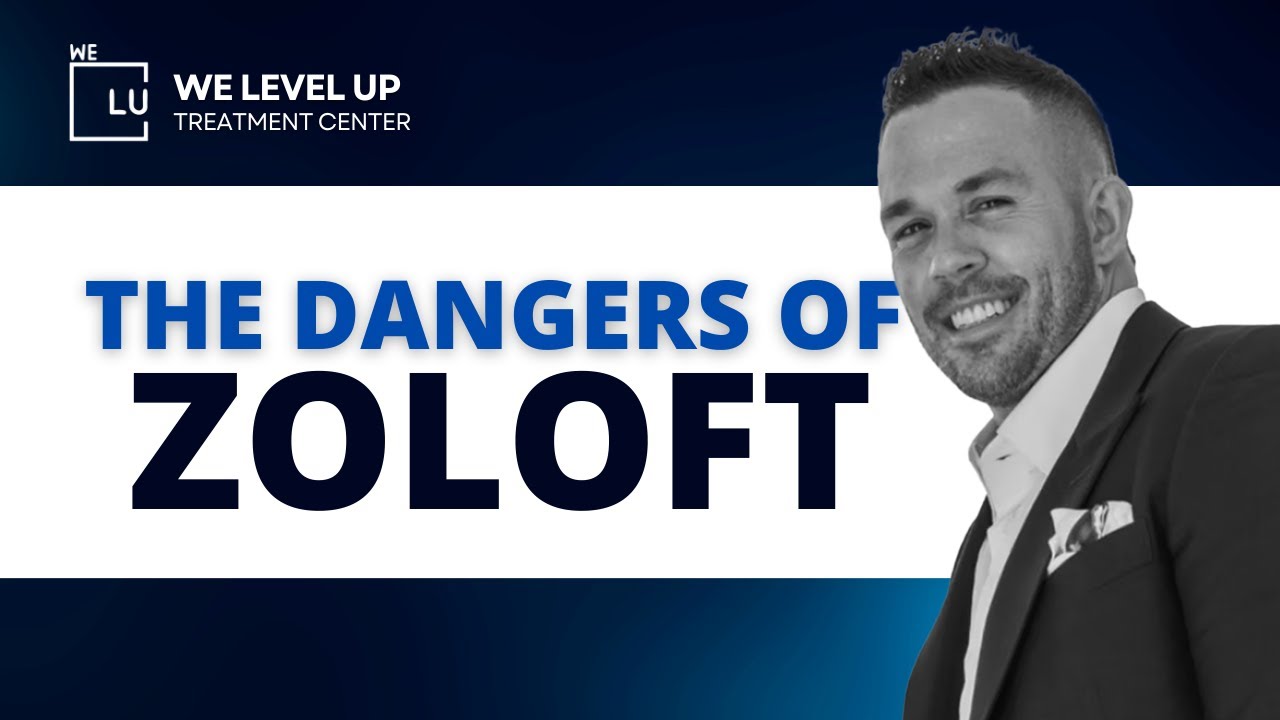Alcohol and ketamine both affect the central nervous system by interacting with a specific brain receptor called the NMDA receptor. Alcohol slows it down, while ketamine blocks it. Slowing down or stopping the NMDA receptor excessively can affect various functions, including cognitive abilities, motor skills, and vital functions like breathing and heart rate.
Ketamine has been used for recreational purposes, mainly as a “club drug,” being referred to as “Key,” “Special K,” “K,” or “Kit Kat.” Ketamine is commonly misused by intranasal route, inhaled, or smoked. When administered in liquid form, users inject it into the body or mix it in alcoholic drinks for the oral route.
Contact We Level Up Texas Treatment Center for a free consultation and additional details on how to detox from alcohol and ketamine properly and safely.
What is Ketamine?
Ketamine is a fast-acting anesthetic and pain reliever primarily used in veterinary surgery. A lower amount of it is also utilized in human medicine.
On ketamine, one may have vivid dreams and a dissociative sense of mind and body. The related medication PCP also causes this effect, known as “dissociation.” Because of its ability to change perception, ketamine is frequently misused. When ketamine is used in human medicine, sedative drugs are usually given in addition to it to counteract these effects.
How Does Ketamine Work?
When people use a small amount of ketamine, it can make them feel more alert and stimulated. They might also feel like they’re floating and experience a disconnection from their body and numbness. But if they take a lot more, things can get intense. Users might become withdrawn, forget where or who they are, and have trouble walking. Their hearts may race, and breathing can become difficult. In extreme cases, they might even lose consciousness.
Users might see things blurry, experience trailing images, and have vivid hallucinations. Some users even talk about feeling like they’re outside their bodies or having a close encounter with death. This state is sometimes called “the K-hole.”
How Does Alcohol Work?
Alcohol has long been utilized in social, medical, cultural, and religious contexts. Most Americans believe that people may responsibly drink alcohol in moderation for social purposes. Alcohol is frequently presented in the media and commercials as a path to happiness. However, severe alcohol abuse can also lead to several other issues, including legal, social, and health issues.
Dangerous Effects of Mixing Ketamine and Alcohol
Abusing alcohol and ketamine alone can cause depression symptoms or other mental health issues. When substances are combined, the potential for hazard increases and the effects are:
- Intensified central nervous system depression.
- Impaired coordination and motor skills.
- Heightened risk of accidents and injuries.
- High heart rate and blood pressure.
- Respiratory distress or failure.
- Memory loss and cognitive impairment.
- Heightened risk of overdose.
- Worsened mental health effects.
- Increased likelihood of addiction or dependence.
- Dangerous synergistic impact on the body and mind.

Skip To:
Learn More:
- Ketamine Addiction Effects, Symptoms, Dangers, and Treatment
- How to Detox Prescription Drugs. Detox Timeline and Treatment
- Prescription Drug Abuse, Causes, Symptoms, and Treatment
- Mixing Prescription Drugs With Alcohol
- Guide to Recovering From Alcoholism
- Alcohol Poisoning Treatments
- Does Drinking Alcohol Decrease Your Immune System?
- Alcohol Withdrawal Symptoms
- Alcohol Detox And Effective Alcoholism Treatment Options
Alcohol and Ketamine Overdose Symptoms
Like alcohol, which is the most consumed psychoactive drug, ketamine misuse has also increased, attributed to its psychedelic activities. However, the co-ingestion of these substances occurs among individuals who ignore the overdose and harmful potentials of each drug and the risks of their combined use.
The consequences of mixing them might intensify several body systems’ damages, which can cause fatal outcomes.
The most common symptoms of alcohol and ketamine overdose include:
- Confusion.
- Unconsciousness.
- Slurred speech.
- Slow or irregular breathing.
- Nausea or vomiting.
- Seizures.
- Cold or clammy skin.
- Blurred or double vision.
- Hallucinations.
- Profound drowsiness or sedation.
- Impaired motor coordination.
- Inability to wake up or respond.
- Respiratory distress or failure.
- Coma.
- Death.
If you see signs of overdose in yourself or someone else, call 911 right away. While waiting for help, watch vital signs and perform CPR if you know how. Try to find out how much ketamine and alcohol were used.
In the emergency room, medical staff may do things like:
- Help with breathing using a tube or a ventilator.
- Run blood and urine tests.
- Do CT scans and X-rays.
- Check the heart with an ECG.
- Provide fluids through an IV.
Survival chances depend on the amount taken, age, health, and more.
Discover professional help from We Level Up Texas dual diagnosis addiction rehab and mental health therapists. Start getting support with a free call to our addiction hotline.
Get Help. Get Better. Get Your Life Back.
Searching for Accredited Drug and Alcohol Rehab Centers Near You? We Level Up Texas Is Opening Soon!
Even if you have failed previously and relapsed, or are in the middle of a difficult crisis, we stand ready to support you. Our trusted behavioral health specialists will not give up on you. When you feel ready or just want someone to speak to about therapy alternatives to change your life call us. Even if we cannot assist you, we will lead you to wherever you can get support. There is no obligation. Call our network hotline today.
FREE Addiction Hotline – Call 24/7What to Know About Ketamine Therapy for Alcoholism
People who suffer from alcohol for an extended period are diagnosed with alcohol use disorder (AUD), and not all of them react well to typical therapies.
When first-line FDA-approved medications don’t work for someone with alcohol consumption problems, ketamine may be a helpful treatment option. However, to give a more precise assessment of the safety profile, dosage techniques, and efficacy of ketamine usage in alcohol use disorder, more focused clinical trials are necessary, this is according to the National Institutes of Health. (NIH) [1]

Ketamine Half-Life
Ketamine has a short half-life of 2 to 3 hours. However, ketamine and its metabolites can be detected in drug tests, with urine tests showing traces for 2 to 4 days.
Inpatient Alcohol and Ketamine Rehab
A personalized detox plan ensures safety and well-being, with medical monitoring allowing adjustments to address health concerns. This supportive process is crucial as individuals begin their journey to recovery.
Inpatient alcohol and ketamine drug rehab programs may include:
- Detoxification services.
- Individual counseling.
- Group therapy sessions.
- Cognitive-behavioral therapy (CBT).
- 12-step or alternative recovery programs.
- Medical supervision and support.
- Dual diagnosis treatment for co-occurring mental health issues.
- Family therapy.
- Aftercare planning.
- Holistic and evidence-based therapies such as yoga or meditation.
Relapse during the early stages of treatment is less likely in the managed setting because it limits external stimuli and distractions. The assurance of a secure and efficient detox process is reinforced by the constant presence of medical monitoring, available round the clock.
The 24/7 medical supervision in inpatient alcohol and ketamine drug rehab programs is required in managing the unpredictable nature of withdrawal, as it allows for the following:
- Timely adjustments to the treatment plan.
- Medication administration for withdrawal or mental health issue symptoms.
- Immediate intervention in the face of any unforeseen complications.
Opening Soon! First-Class Facilities & Amenities
World-Class High-Quality Addiction & Mental Health Rehabilitation Treatment
Coming Soon! Rehab Centers TourRenowned Addiction Centers. Serene Private Facilities. Inpatient Rehab Programs Vary.
FREE Addiction Hotline – Call 24/7Proven recovery success experience, backed by a Team with History of:
15+
Years of Unified Experience
100s
5-Star Reviews Across Our Centers
10K
Recovery Success Stories Across Our Network
- Low Patient to Therapist Ratio
- Onsite Medical Detox Center
- Comprehensive Dual-Diagnosis Treatment
- Complimentary Family & Alumni Programs
- Coaching, Recovery & Personal Development Events
Ketamine and Alcohol Detox
Medical detox is an essential first step in creating a comprehensive and personalized treatment plan for alcohol and ketamine addiction. Admitting your addiction’s warning signs and admitting you need treatment is vital. To determine the best course of action, this often involves having a trained addiction specialist assess you for alcohol and substance use disorder.
Once detox is complete, a new doorway in alcohol and ketamine addiction treatment opens up, which is referred to as an inpatient drug rehab or residential level of care. Our residential care program slowly and effectively presents the individual with an atmosphere of therapeutic growth, marked by master’s level therapists, clinicians, group counselors, psychiatrists, and a community of like-minded individuals with the same aim: to attain sobriety and live a great life.
Programs for inpatient rehab offer a medically supervised, controlled setting that is available around the clock, encouraging the procedure of detoxification and treating both the physical and mental aspects of addiction. Understanding the underlying causes of dependence and developing coping skills are crucial outcomes of both individual and group therapy. When it comes to treating the thinking patterns and behaviors connected to alcohol and ketamine drug use, cognitive-behavioral therapy (CBT) is particularly effective.
Follow-up care is necessary once a formal treatment program is finished. Participating in support groups, creating a relapse prevention strategy, and immersing in therapy may all be part of this. Ongoing recovery requires adopting a comprehensive well-being perspective that includes good lifestyle preferences.
Aftercare Program for Alcohol and Ketamine Addiction Treatment
One effective technique for treating alcoholism and ketamine addiction in patients is cognitive behavioral therapy or CBT. Patients who receive this psychotherapy are oriented to identify negative self-perceptions, which can act as relapse triggers, as well as events that may entice them to use the ketamine drug and drink alcohol once more. Upon realizing this, individuals can create coping mechanisms to stop thoughts of relapse and steer clear of tempting occasions. This type of treatment gives patients a sense of accountability, which is crucial for preserving motivation and permanently removing the alcohol and ketamine drugs from their lives.
We Level Up Texas Alcohol and Ketamine Rehab Center
Detoxification helps remove alcohol and ketamine from the body, managing withdrawal symptoms and ensuring physical stabilization. However, it’s crucial to follow up with extensive addiction therapy.
As you detox from alcohol and ketamine, you have to keep your healthy diet and exercise routines. Your body and mind need this healthy lifestyle to overcome detox challenges. To help with your treatment and healing, our rehab amenities provide a range of activities, refreshing meals, and peaceful surroundings. Recreational workouts may also be a valuable diversion from detox symptoms.
Our modern detox facility and round-the-clock nursing care provide a safe and comfortable setting for rest and recovery. During detox, you can experience on-site We Level Up Texas facility programs, such as lectures, workshops, and group therapy. You can learn essential information from these sessions about your substance use problem and long-term healing strategies.
If you’re seeking assistance with your rehab journey, reach out to a We Level Up Texas treatment professional today.
Get a free rehab insurance check without any obligation.
Opening Soon! World-class, Accredited, Anticipated 5-Star Reviewed, Effective Addiction & Mental Health Programs. Complete Behavioral Health Inpatient Rehab, Detox plus Co-occuring Disorders Therapy.
FREE Addiction Hotline – Call 24/7End the Addiction Pain. End the Emotional Rollercoaster. Get Your Life Back. Start Drug, Alcohol & Dual Diagnosis Mental Health Treatment Now. Get Free No-obligation Guidance by Substance Abuse Specialists Who Understand Addiction & Mental Health Recovery & Know How to Help.
“I Turned My Life Around from Drug, Alcohol Addiction, Loneliness, Despair, and Anxiety to Full Recovery.” — Testimonial Video
Start a New Life
Begin with a free call to an addiction & behavioral health treatment advisor. Learn more about our dual-diagnosis programs. The We Level Up treatment center network delivers recovery programs that vary by each treatment facility. Call to learn more.
- Personalized Care
- Caring Accountable Staff
- World-class Amenities
- Licensed & Accredited
- Renowned w/ 100s 5-Star Reviews
We’ll Call You
Search We Level Up Texas Ketamine Addiction Treatment, Mental Health Topics, and Resources
Sources
- Kelson M, Burnett JM, Matthews A, Juneja T. Ketamine Treatment for Alcohol Use Disorder: A Systematic Review. Cureus. 2023 May 3;15(5):e38498. Doi: 10.7759/cureus.38498. PMID: 37273364; PMCID: PMC10237681.
- Kobayashi NHC, Farias SV, Luz DA, Machado-Ferraro KM, Conceição BCD, Silveira CCMD, Fernandes LMP, Cartágenes SC, Ferreira VMM, Fontes-Júnior EA, Maia CDSF. Ketamine plus Alcohol: What We Know and What We Can Expect about This. Int J Mol Sci. 2022 Jul 15;23(14):7800. Doi: 10.3390/ijms23147800. PMID: 35887148; PMCID: PMC9323326.
- FDA warns patients and health care providers about potential risks associated with compounded ketamine products, including oral formulations, for the treatment of psychiatric disorders – Food and Drug Administration (FDA)
- Rosenbaum SB, Gupta V, Patel P, et al. Ketamine. [Updated 2023 May 26]. In: StatPearls [Internet]. Treasure Island (FL): StatPearls Publishing; 2023 Jan-. Available from: https://www.ncbi.nlm.nih.gov/books/NBK470357/ Research related to ketamine with alcohol; ketamine for alcoholism; alcohol ketamine; ketamine alcohol use disorder; ketamine and alcohol interaction.
- Ivan Ezquerra-Romano I, Lawn W, Krupitsky E, Morgan CJA. Ketamine for the treatment of addiction: Evidence and potential mechanisms. Neuropharmacology. 2018 Nov;142:72-82. Doi: 10.1016/j.neuropharm.2018.01.017. Epub 2018 Jan 12. PMID: 29339294.
- Liu Y, Lin D, Wu B, Zhou W. Ketamine abuse potential and use disorder. Brain Res Bull. 2016 Sep;126(Pt 1):68-73. Doi: 10.1016/j.brainresbull.2016.05.016. Epub 2016 May 31. PMID: 27261367. Research related to Can you get addicted to ketamine? Ketamine addiction risk; ketamine for addiction; addicted to ketamine.
- Le TT, Cordero IP, Jawad MY, Swainson J, Di Vincenzo JD, Jaberi S, Phan L, Lui LMW, Ho R, Rosenblat JD, McIntyre RS. The abuse liability of ketamine: A scoping review of preclinical and clinical studies. J Psychiatr Res. 2022 Jul;151:476-496. Doi: 10.1016/j.jpsychires.2022.04.035. Epub 2022 May 10. PMID: 35623124.
- Yavi M, Lee H, Henter ID, Park LT, Zarate CA Jr. Ketamine treatment for depression: a review. Discov Ment Health. 2022;2(1):9. Doi: 10.1007/s44192-022-00012-3. Epub 2022 Apr 15. PMID: 35509843; PMCID: PMC9010394.
- Mandal S, Sinha VK, Goyal N. Efficacy of ketamine therapy in the treatment of depression. Indian J Psychiatry. 2019 Sep-Oct;61(5):480-485. Doi: 10.4103/psychiatry.IndianJPsychiatry_484_18. PMID: 31579184; PMCID: PMC6767816.
- Drug Fact Sheet: Ketamine – Drug Enforcement Administration (DEA)
- Ketamine Fast Facts – Department of Justice (.gov)








